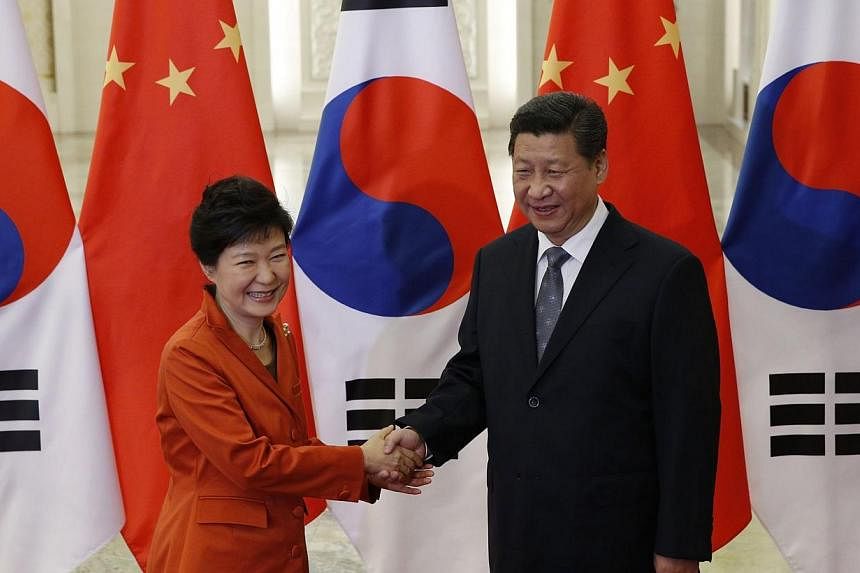SEOUL (AFP) - South Korea said on Monday it had effectively reached a free trade agreement with China that will eventually remove tariffs on over 90 per cent of goods, although some details remain under negotiation.
The announcement came after South Korean President Park Geun Hye met Chinese President Xi Jinping on the sidelines of the Apec summit in Beijing.
Park's office said the two countries had "effectively reached" a deal, while Xi said the negotiations had made "significant progress".
A South Korean government statement made it clear that differences remained over a few unspecified "details" that would have to be bridged before the FTA could be signed - hopefully by the end of the year.
The statement said the FTA would remove tariffs on 92 per cent of Chinese goods imported to the South and 91 percent of the South's goods imported to China within 20 years.
China is currently South Korea's biggest trading partner and export market, and two-way trade stood at around US$228.8 billion (S$286 billion) last year.
Exports to China - the world's second-largest economy - totalled US$145.8 billion in 2013, more than a quarter of the South's total overseas shipments.
The two neighbours started trade negotiations in 2012 but progress has been delayed by differences on the extent of market-opening.
There have also been protests from Korean farmers who fear an influx of cheap Chinese imports.
The South Korean statement said the FTA would exclude a number of farm products like rice, beef, pork and pepper - which account for 30 per cent by value of agricultural imports from China.
"The latest FTA will help us secure an opportunity to tap into the vast Chinese market," the statement said, estimating bilateral trade would grow to US$300 billion in 2015.
The deal also removes many regulatory restrictions in services, investment, finance and culture, making it easier for companies to form joint ventures and cooperate.

